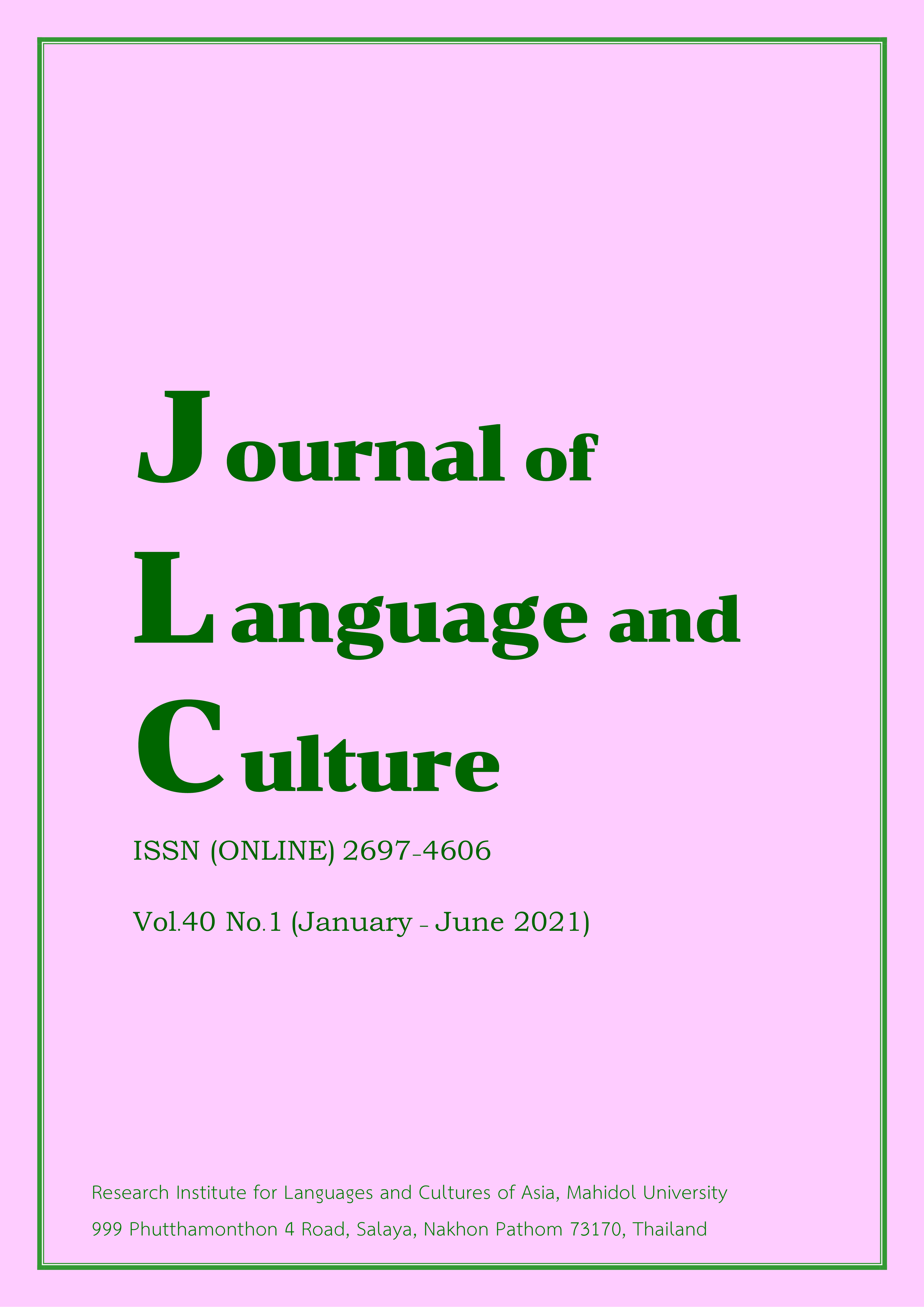Instructional activity management enhancing Thai language use skills for nonviolent communication in 21st century for student teachers of Thai
Main Article Content
Abstract
This research was aimed at organizing instructional activity management to enhance Thai language use skills for nonviolent communication in the 21st century for student teachers of Thai at the Faculty of Education, Chiang Mai University, and to study the opinions of the students about the instruction. The research employed mixed methods consisting of quantitative and qualitative research methods. The sample included 34 second year undergraduate students majoring in teaching Thai at the Faculty of Education who were enrolled in course number 067433 - Development of Teaching Skills in Thai Language. The sample was selected through purposive sampling. Research instruments included instructional plans for enhancing Thai language skills for nonviolent communication in the 21st century, reflection forms, students’ classwork, and questionnaires asking students’ opinions on the instruction to enhance Thai language skills for nonviolent communication. The quantitative data obtained were analyzed by using a descriptive statistical method to produce percentages, mean, and standard deviation. The qualitative data were analyzed through descriptive analysis. One outcome of the research was the organizing of instructional activities to enhance skills in using Thai for nonviolent communication in the 21st century among students majoring in teaching Thai. The students’ opinions of the instruction, in general, were at a high level with a mean of 4.42 and a standard deviation of 0.65. The research results will be useful for development to promote the use of Thai language skills for peaceful communication for teachers and students in order to enable effective teaching and learning between teachers and students and between teachers and learners and between learners and teachers.
Article Details
The articles featured in the Journal of Language and Culture (JLC) constitute academic works representing the viewpoints of the respective author(s). It is crucial to note that these opinions do not necessarily reflect those of the Editorial Board.
All articles published in JLC are released under the Creative Commons Attribution 4.0 International License (CC BY 4.0). This license grants permission for unrestricted use, distribution, and reproduction in any medium, provided proper credit is given to the original author(s) and the source.


